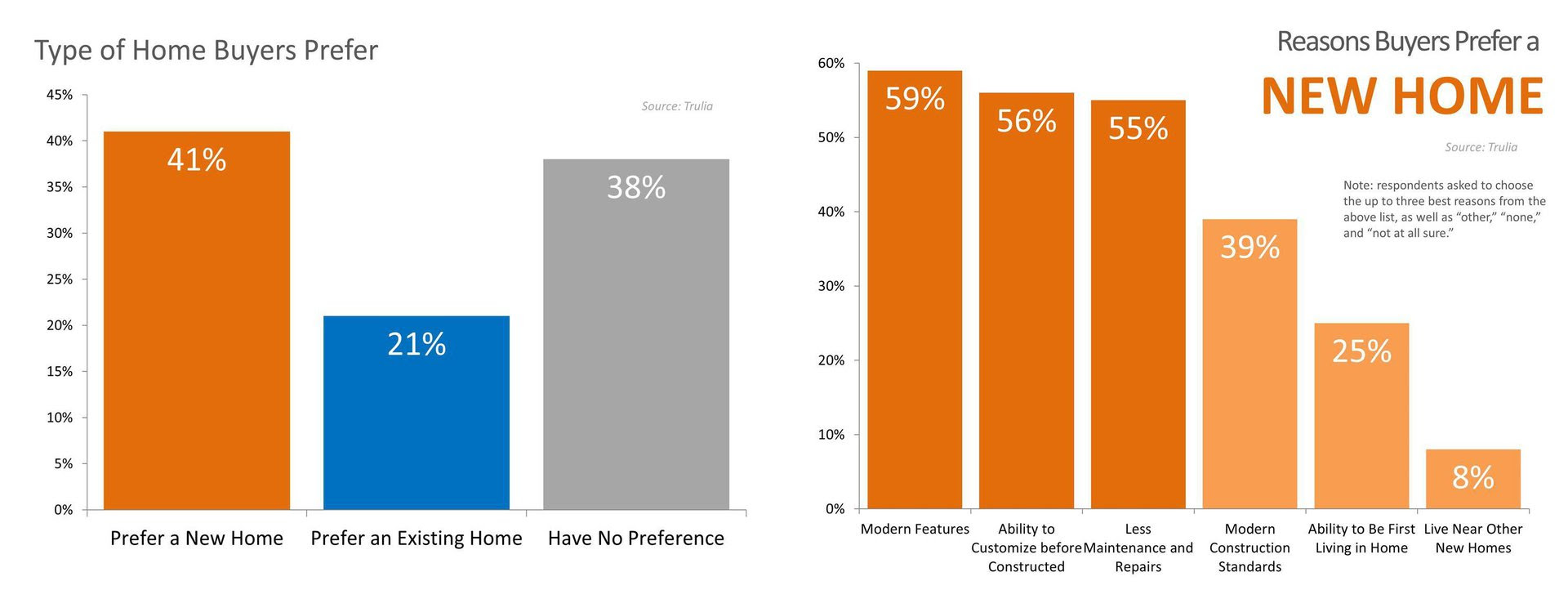Knowing what appeals to today’s homebuyers, and considering those trends when you remodel, can pay off years from now when you sell your home.
Two new surveys about what homebuyers want have me feeling pretty smug about my own home choices. Maybe you'll feel the same.
Privacy from neighbors remains at the top of the most-wanted list (important to 86% of buyers), according to the NATIONAL ASSOCIATION OF REALTORS’® "2013 Community Preference Survey." Privacy is no doubt the best feature of my mid-century ranch home, since I can only see one neighbor’s house and it’s a couple hundred feet down my driveway.
It may not be practical to move your neighbors farther away (although I’m sure many people wish they had that superpower), but you can increase your home’s privacy (and therefore its resale value) by planting a living privacy screen of trees and shrubs or by physically screening off your patio.
3 More Takeaways for the Next Time You Remodel
1. More and more generations are living together. Another NAR survey, the "2013 Profile of Home Buyers and Sellers," found 14% of buyers purchased a home suited to a multigenerational household due to children over the age of 18 moving back into the house, cost savings, and the health and caretaking of aging parents.
I did that back when my parents were still alive, and it worked out great for everyone. I didn’t have time to let my infant daughter nap on my shoulder all afternoon, but my mom did. She couldn’t drive to church meetings at night, but I could take her. And neither of us liked cleaning the gutters, but my husband didn’t mind that chore.
Even if you’d rather live in a cardboard box than with your mother, you might want to consider the multigenerational living trend when you’re remodeling. For instance, opting for a full bath when finishing the basement could offer more convenience for you now and boost your home’s resale value by making it more appealing to a multigenerational family.
2. On average, homeowners live in their home for nine years. That’s up from six years in 2007. Since you’ll be in your home for a long time, it makes sense to remodel to suit your taste but also with long-lasting marketability in mind. After all, you don’t want to have to redo stuff. For instance, you can go for trend-defying kitchen features, like white overtones and Shaker-style cabinets, which work with a variety of styles.
I feel compelled to caution against going so far out of the norm for your neighborhood that it’ll turn off potential buyers even nine years from now. (It never hurts to get your REALTOR®’s opinion on your remodeling plans.)
3. Homebuyers love energy efficiency. Heating and cooling costs were "somewhat" or "very important" to a whopping 85% of buyers. If your home could use an energy-efficiency upgrade, go with projects that have a solid return on investment, like sealing your air leaks and adding attic insulation. You’ll save money on your utility bills now and when you’re ready to sell, your home will appeal to buyers looking for efficiency.
By the way, to take back your energy bills, you need to do at least four things. One to two fixes won’t cut it, thanks to rising energy costs.
About two-thirds of survey respondents also thought energy-efficient appliances and energy-efficient lighting were important. Tuck away your manuals and energy-efficiency information when you buy new appliances and lighting. When you’re ready to sell (in nine years) you can pull those out and display them where buyers will see them.






